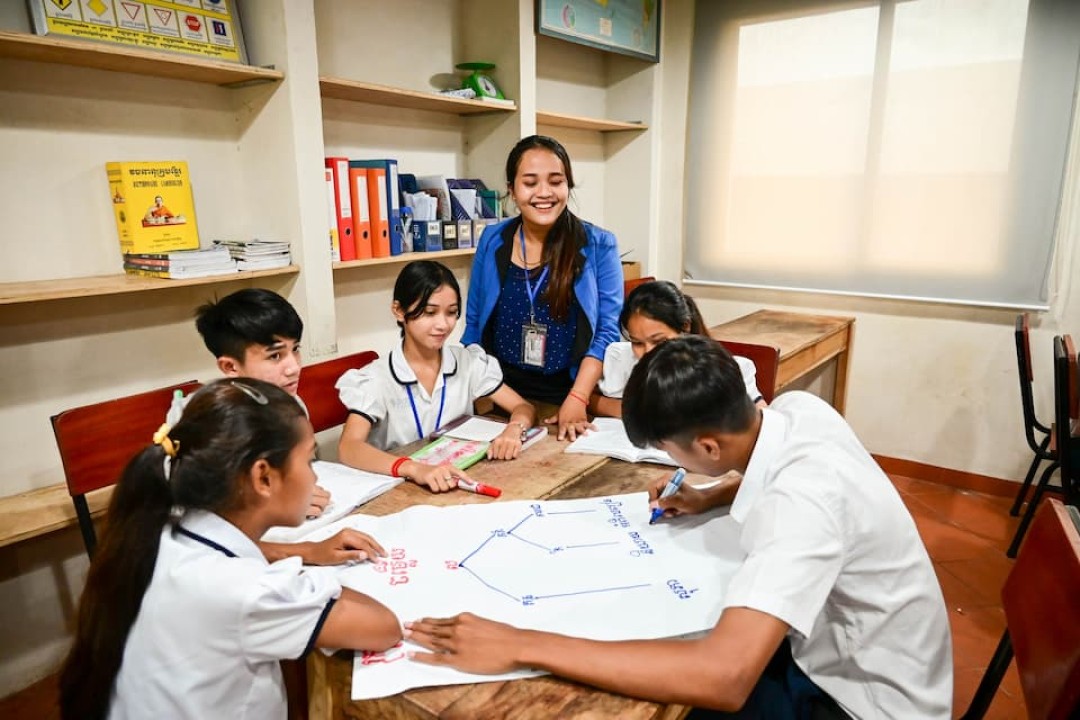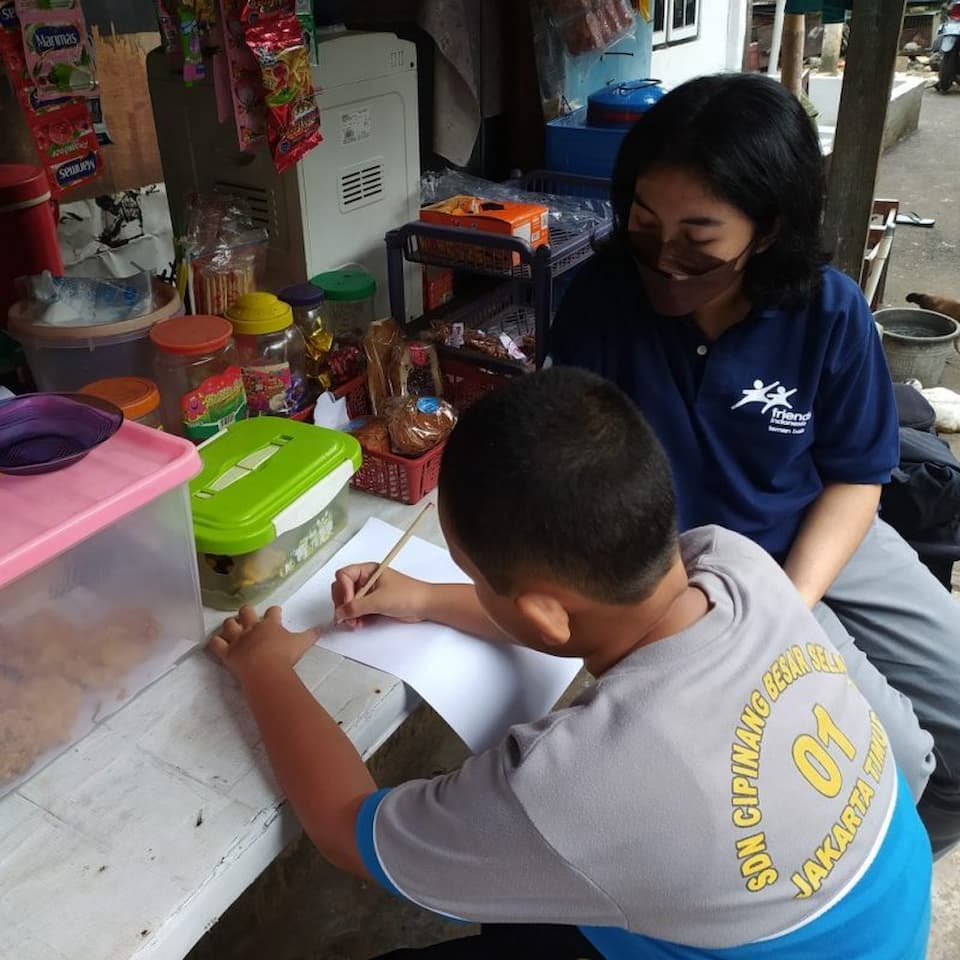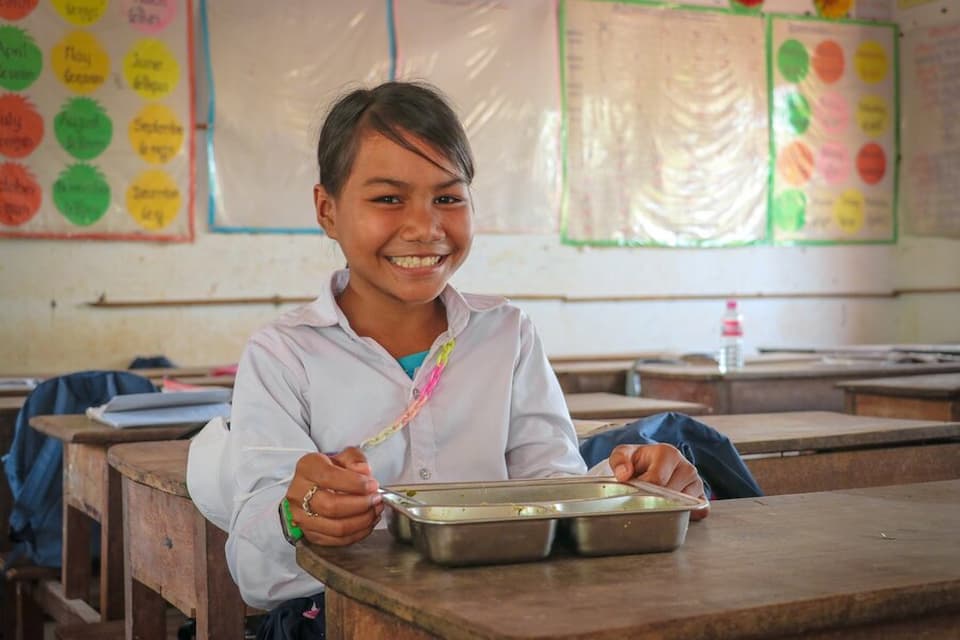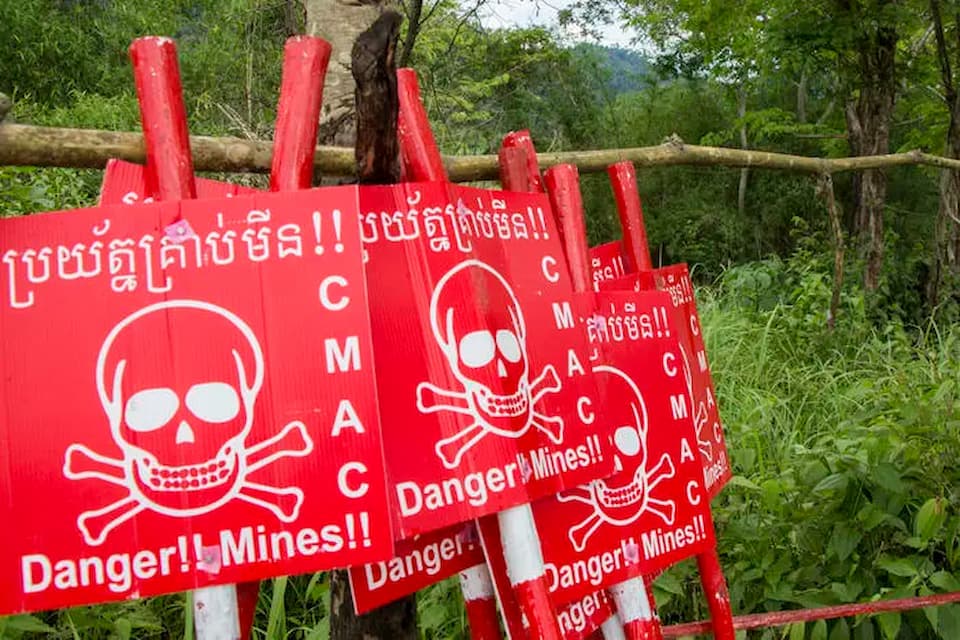NGO in Cambodia

NGOs (Non-governmental organisations) in Cambodia have played a pivotal role in the country's journey since the downfall of the Khmer Rouge regime in 1979. We look at some of the background, how they have helped the development of the Kingdom and what role they serve in Cambodia.
Background To NGOs In Cambodia
Following the tumultuous period after the Khmer Rouge, numerous non-governmental organisations such as the International Rescue Committee, Médecins Sans Frontières, and Oxfam Great Britain established a presence in Cambodia.
The United Nations Transitional Authority of Cambodia (UNTAC) arrived in 1992 with the mission to bring an end to the conflict and facilitate the nation's first free and fair elections under the supervision of UN peacekeeping forces.
Since then, Cambodia has become a hub for various NGOs operating across multiple sectors, contributing significantly to the nation's development and fostering positive change. These organisations undertake vital roles in delivering essential services and advocating for societal progress.
NGOs work in a wide variety of areas in Cambodia including governance; education (especially in rural communities where access to education is limited); agriculture; infrastructure (often involving helping to build houses or schools in poor communities); health and nutrition, relating to food and water security, sanitation and the prevention of diseases; poverty alleviation, especially through microfinance programmes; and the environment, helping to preserve wildlife, especially those in danger of extinction.
Funding for non-governmental organisations in Cambodia originates from a range of sources, including foreign governments or international organisations.
How NGOs Assist In Cambodia

According to the Cambodian Interior Ministry, as of February 2024, there were over 6,100 registered associations and NGOs in the country, with 2,450+ classified as local associations and NGOs and approximately 300 international NGOs.
Transportation, communications, agriculture and the natural resources sector were the main beneficiaries of aid.
Key areas of NGO intervention and assistance in the Kingdom of Cambodia include:
- Poverty Alleviation: Many NGOs focus on reducing poverty by offering microfinance initiatives, vocational training programs, and educational opportunities.
- Education: NGOs are dedicated to enhancing access to education for all Cambodians, particularly targeting marginalised groups such as children, women, and rural communities.
- Healthcare: NGOs extend healthcare services to rural regions and prioritise initiatives to improve maternal and child health outcomes.
- Human Rights: Advocacy for human rights forms a core aspect of NGO activities in Cambodia, with a focus on protecting vulnerable populations including women, children, and ethnic minorities.
- Environmental Conservation: NGOs engage in efforts to safeguard the environment and promote sustainable development practices across the nation.
These international organisations can offer expertise, resources, and assistance, contributing significantly to various sectors of Cambodian society.
The Cooperation Committee for Cambodia (CCC) is a prominent membership-based organisation that has almost 170 NGOs as members, comprising both local and international NGOs.
What Are The Impacts Of NGOs On Cambodia?
The presence of NGOs in Cambodia has had an impact on the country's social, economic, and environmental landscape as they have helped foster community growth, protect the environment, promote human rights, enhance educational opportunities, and improve healthcare services, among other contributions.
In Cambodia, foreign aid comes in two types: humanitarian and development aid, each of which can be delivered in various ways.

Humanitarian Aid In Cambodia
Humanitarian aid, or emergency aid (called ‘relief aid’) is provided in response to disasters, conflicts, or other emergencies.
Cambodia regularly receives this type of aid due to recurring disasters such as yearly floods and outbreaks of infectious diseases.
In 2011 for example, Cambodia experienced one of its worst floods in 25 years, affecting the majority of the country. In response, organisations like Care and the World Food Programme provided emergency provisions, including food, tents, and, in some cases, cash, to those in greatest need. However, humanitarian aid is not limited to emergency responses alone. Since the flooding, the Asian Development Bank has been involved in various reconstruction projects, such as repairing and reinforcing roads, bridges, and dykes.
In 2020, when Cambodia faced severe flooding once again, Relief Web released the Cambodia Food Response Plan 2020, and the United Nations sought USD $9 million in aid for Cambodian flood victims.
The National Early Warning System (EWS), implemented by the National Committee for Disaster Management (NCDM) and supported by the Ministry of Posts and Telecommunications (MPTC), was developed by the People in Need (PIN). It provides an upstream response to flood and disaster risk challenges in Cambodia by disseminating timely and reliable information to at-risk communities.
Development Aid In Cambodia
Development aid, or long-term aid, is the larger of the two types of aid delivered to Cambodia. Development aid is financial aid given by governments and other agencies to support the economic, environmental, social, and political development of developing countries, such as Cambodia.
Development aid can come in a number of forms including official development assistance, earmarked assistance, military aid, technical assistance, grants and commodity import programmes, trade agreements and development loans.
Some development aid reflects certain commercial and diplomatic/political interests, developing certain areas for greater investment opportunities, for instance, while some come with no strings attached whatsoever. The areas development aid may affect are wide-reaching and will inevitably have some impact on businesses in the same sector.
Positive benefits can be seen in the improvement of the logistics, healthcare and agriculture sectors throughout Cambodia, and further positive flow-on effects can be witnessed right across the spectrum of Cambodian business interests.
International aid and donors include China, the Japanese, Australians, Americans, Koreans, and Germans, as well as the EU, Asian Development Bank and the United Nations.
Types Of NGOs In Cambodia
Throughout Cambodia, you will find a range of NGOs and organisations that are referred to by various designations including:
- International Non-Governmental Organisations (INGOs)
- International Organisations (IOs)
- Civil Society Organisations (CSOs) and
- Community-Based Organisations (CBOs)
There are significant differences among the NGOs in their missions, who they work with, where they work, and even their budgets.
International Organisations (IOs) are the United Nations and all its agencies including the World Food Programme (WFP), Food and Agriculture Organisation (FAO), UN Development Programme (UNDP), etc.
The U.S. Agency for International Development (USAID) has provided support to Cambodia's workforce, environment, health, and other sectors. Additionally, initiatives like Cambodia Harvest (I, II, III) and the German Agency for International Cooperation (GIZ) have implemented projects aimed at supporting small and medium enterprises in the country.
The IO designation also includes organisations such as the World Trade Organisation (WTO), the International Labour Organisation (ILO), the International Energy Agency (IEA) and several others.
- UK-based NGOs working in Cambodia include Oxfam GB, CAFOD, ActionAid UK, and Save the Children International.
- US-based NGOs are the Clinton Health Access Initiative (CHAI), Population Service International (PSI), etc.
Local NGOs are those organisations based solely in Cambodia and some are operated by foreigners, and others by Cambodians. As with any organisation, they run the gamut of sectors and range in size from a couple of people working out of a house to staff numbers that rival INGOs.
CSOs, such as NGOs, Community-Based Organisations (CBOs), networks, and civic alliances, have received constitutional support and have been bolstered by numerous international human rights treaties that Cambodia has ratified. CBOs and CSOs are grassroots organisations that concentrate on specific sectors of society or particular regions within Cambodia.
NGO Work In Demining Cambodia

Many NGOs assist in demining efforts across Cambodia, such as the Landmine Relief Fund, Halo Trust and Cambodian Self Help Demining (CSHD).
The public sector is also involved such as The Cambodian Mine Action Centre (CMAC) is Cambodia’s leading demining organisation, working in the key areas of Survey and Land Release, Mine and UXO Clearance, Mine and UXO Risk Education and Training, Research and Development.
Are NGOs Good For Your Business In Cambodia?
There have been some concerns expressed about the impact of NGOs in Cambodia by the Royal Government of Cambodia when it comes to advocacy, legal rights and human rights
There has also been in the past a dependency syndrome where the government and other stakeholders become reliant on external support rather than developing sustainable domestic solutions which can hinder long-term development efforts and perpetuate a cycle of aid dependency -however with the change in the economy and development of the country this has changed.
The changing wealth status and income also means it's been more difficult for organisations to rely on donors as internationally they view Cambodia in a different light although many pockets of the population still need support.
Other criticisms of NGOs have been the transparency of high salaries paid to expatriate workers in NGOs and some scams associated with orphanages and in some cases abuses in youth work.
NGOs do play an important role in advocating for national reforms that pave the way for improvements in education, human rights, the legal system, social services, the environment, and women's and children’s rights. NGOs also continue to play a vital role in supporting the provision of basic social services.
Businesses do choose to partner with well-trusted and established charitable or NGO partners as part of CSR programs - especially if a business is trying to support a specific cause or sector and the NGO has proven itself to be registered, and running a good and beneficial sustainable program
- Some NGOs also provide training or education for the hospitality industry, for instance, such as Pour un Sourire d’Enfant (PSE) and Friends International contribute towards sustainable tourism in Cambodia.
- NGOs might also run extensive research programmes, publish large numbers of research papers and make them freely available, providing information that can be utilised by your business as needed.
- Additionally, some NGOs may be inclined to make use of the goods or services that your company produces (design and printing services for example), creating a market that you may not have previously considered.